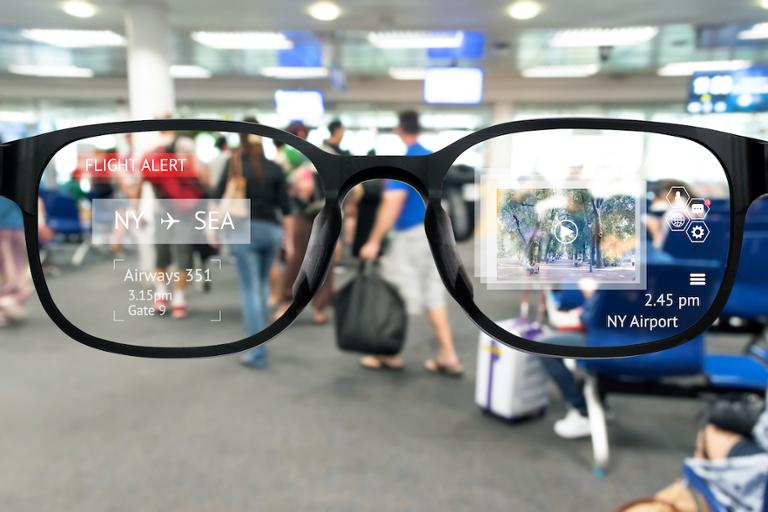Google wants a piece of the augmented reality (AR) market, according to new job postings initially spotted by 9to5Google. Those postings suggest the search-engine giant is hard at work on a customized operating system for AR, as well as an “innovative AR device.”
Based on those job postings (which include software developers who specialize in cameras, embedded hardware, and machine learning), Google wants technologists who are skilled in the Linux kernel and driver model as well as real-time operating system (RTOS) development. Google already maintains a handful of operating systems—including Android, Fuchsia, and Chrome OS—so anyone taking these roles would presumably have lots of internal resources and knowledge to rely upon.
If Google manages to launch an AR OS and associated hardware, it could face stiff competition from Apple, which is reportedly working on an AR headset, and Meta (formerly Facebook), which plans on pouring billions of dollars into VR and AR products. There’s also the possibility that Microsoft could make a cheaper, consumer-oriented version of its HoloLens, which currently provides AR experiences for specialized industries and the enterprise.
Can Google build a successful AR platform that developers want to use? It wasn’t too long ago that Google tried to make a splash in the VR market with Daydream, which was integrated into Android N and included a developer SDK along with a handful of apps. Google encouraged third-party developers to build VR apps and games for the Daydream platform, which it claimed would grow thanks to Android’s massive install base.
But all that effort seemed to come to naught. Despite a Daydream section in the Google Play app store, along with a fancy website, Google lost faith in its VR initiative. By May 2019, the company’s Pixel phones no longer supported Daydream, and developer interest fell off.
Google has a long history of killing off projects with precious little warning (just visit the Google Cemetery to see all the casualties over the years). Even if it launches an AR headset and apps, will it stick with the initiative long enough for third-party developers to build up a cool library of software? That’s the key question—and given Google’s history, you can see why some developers might be reluctant to join the early adopters.

